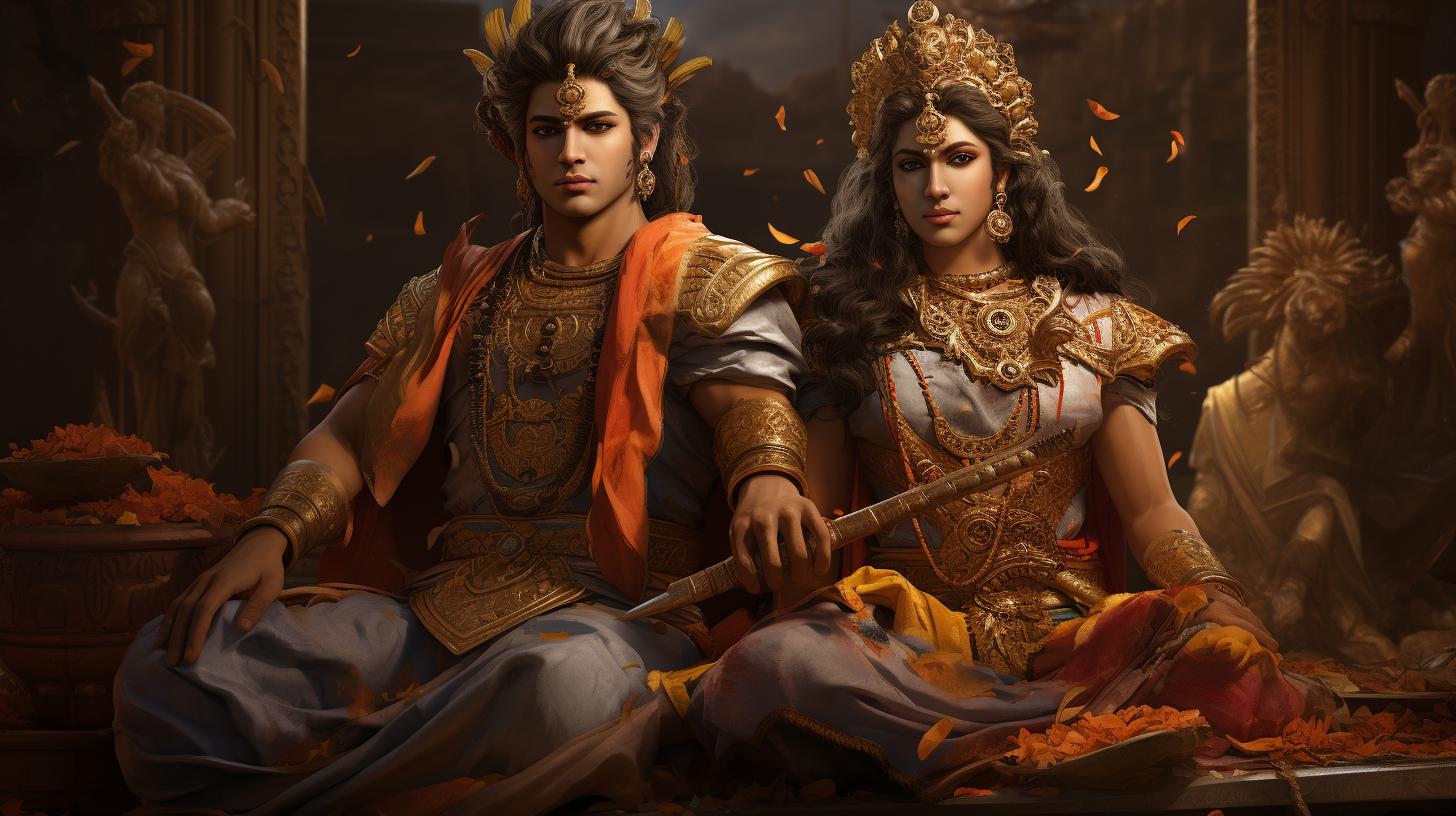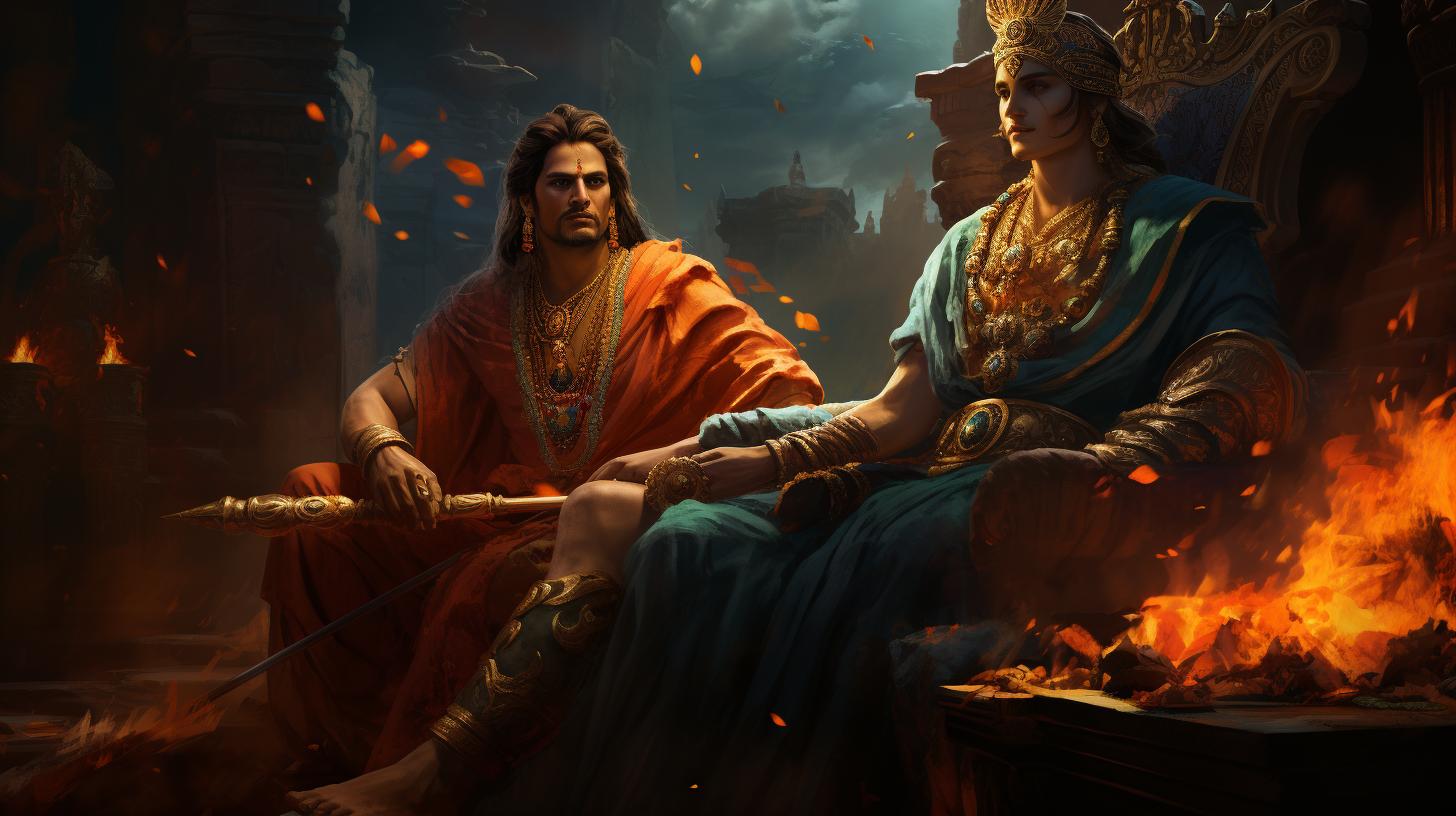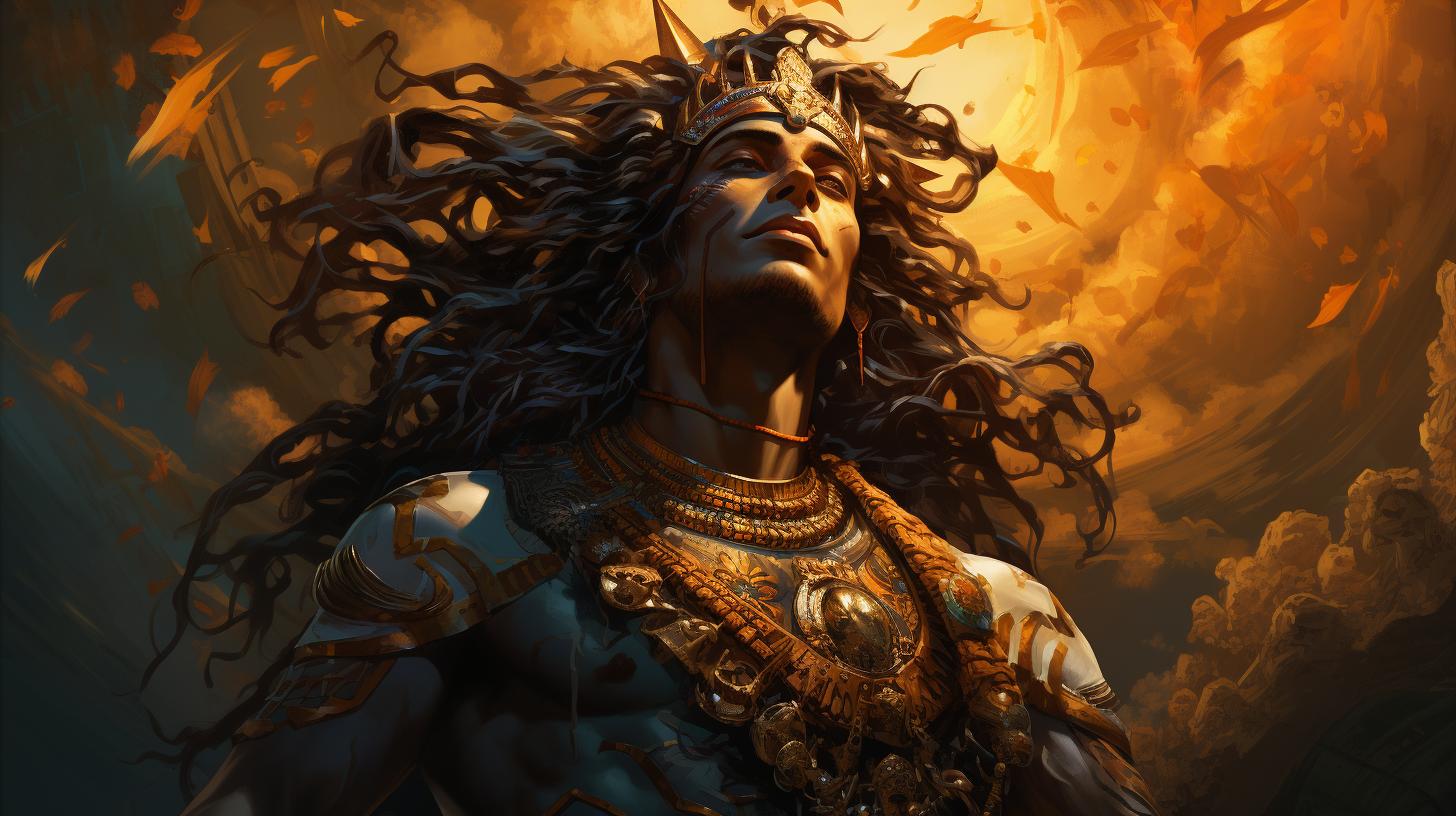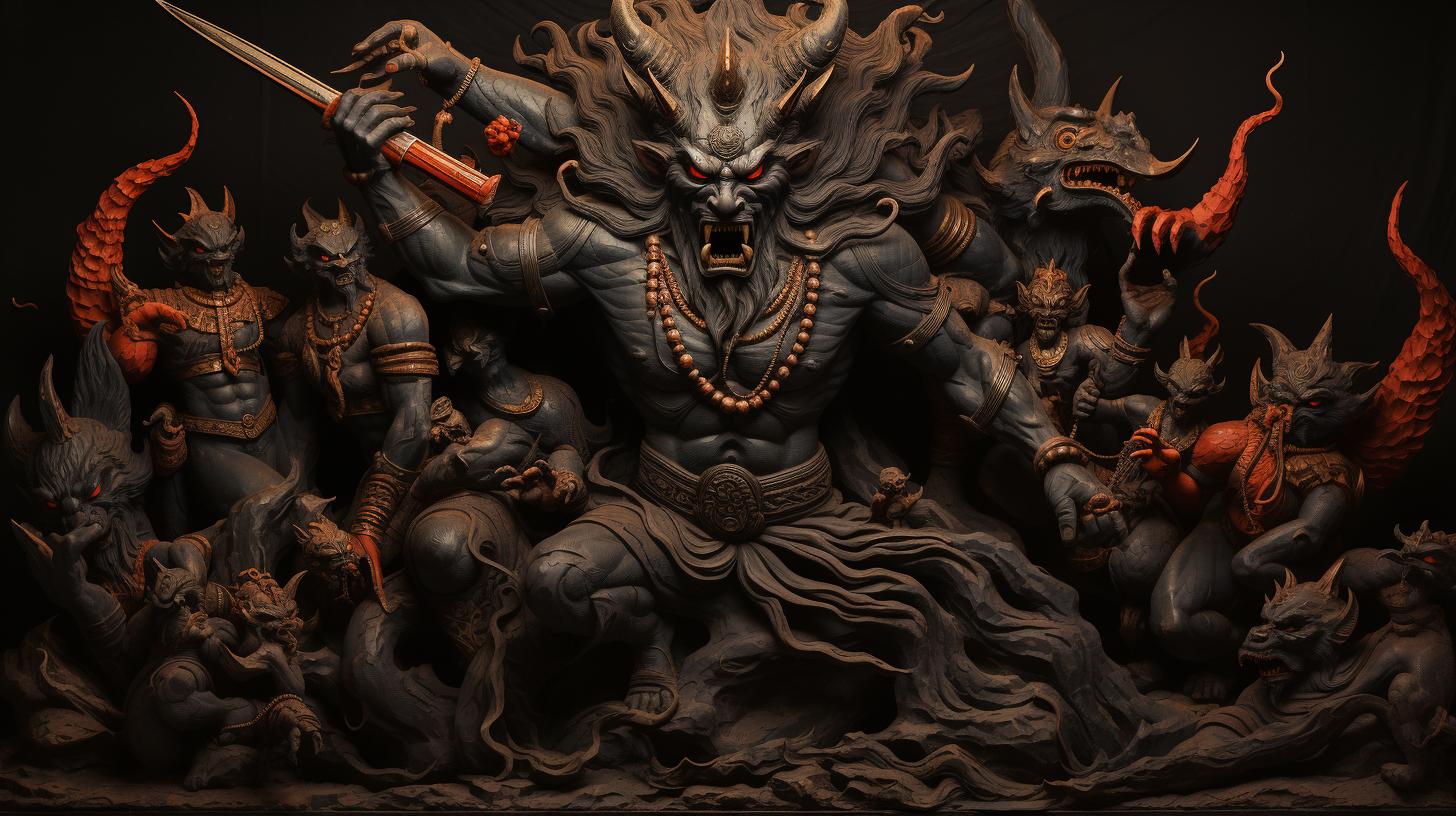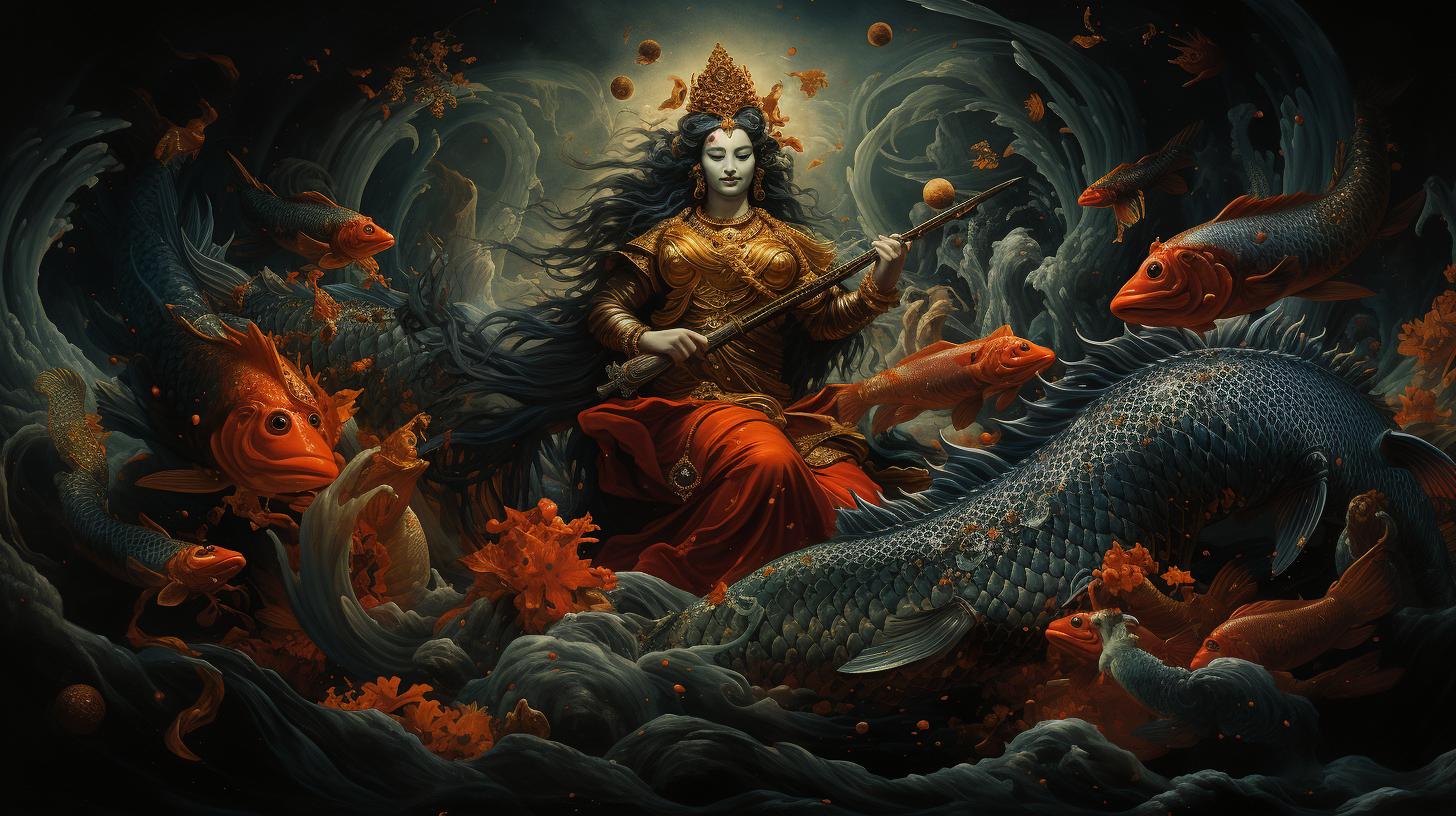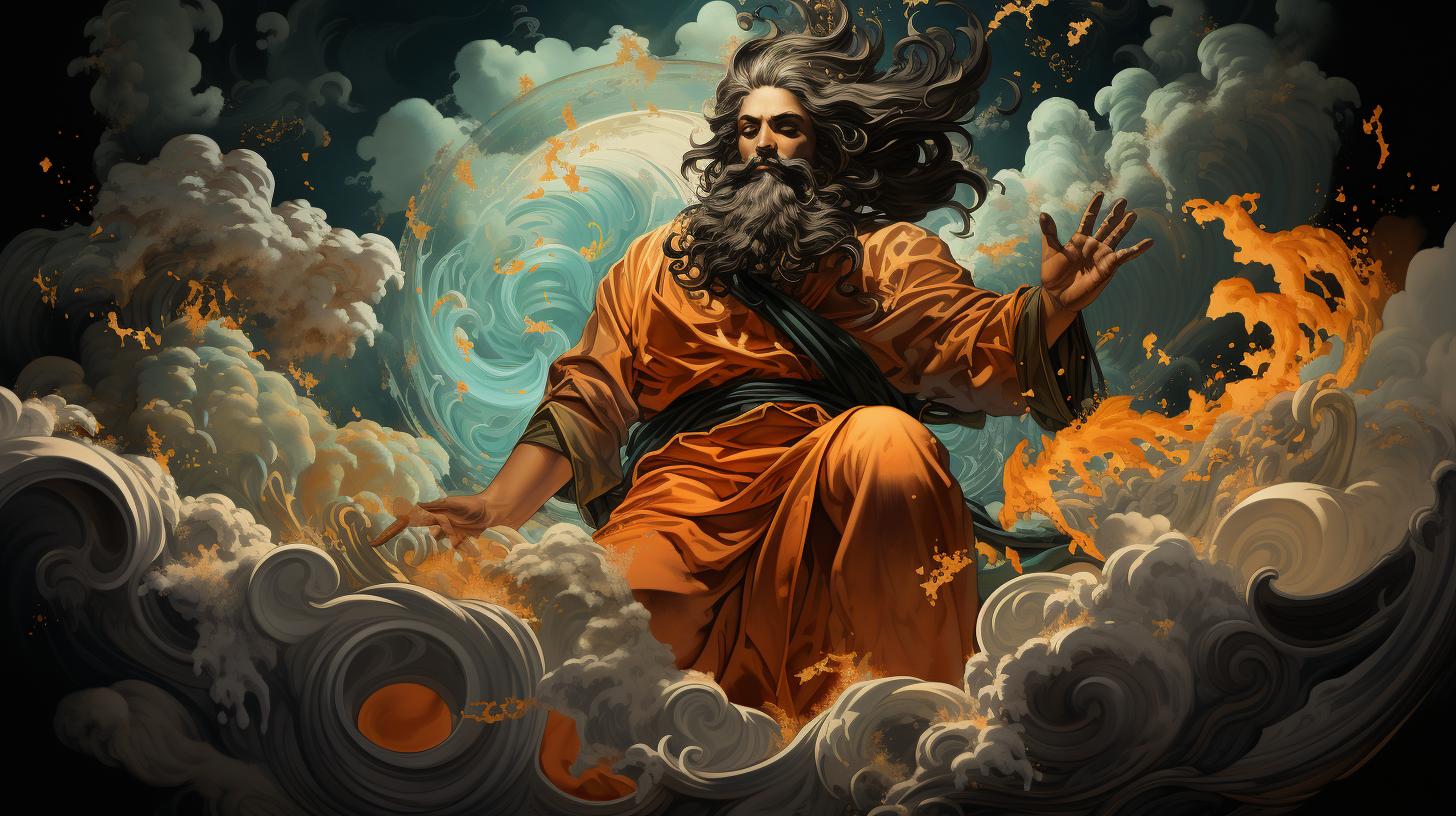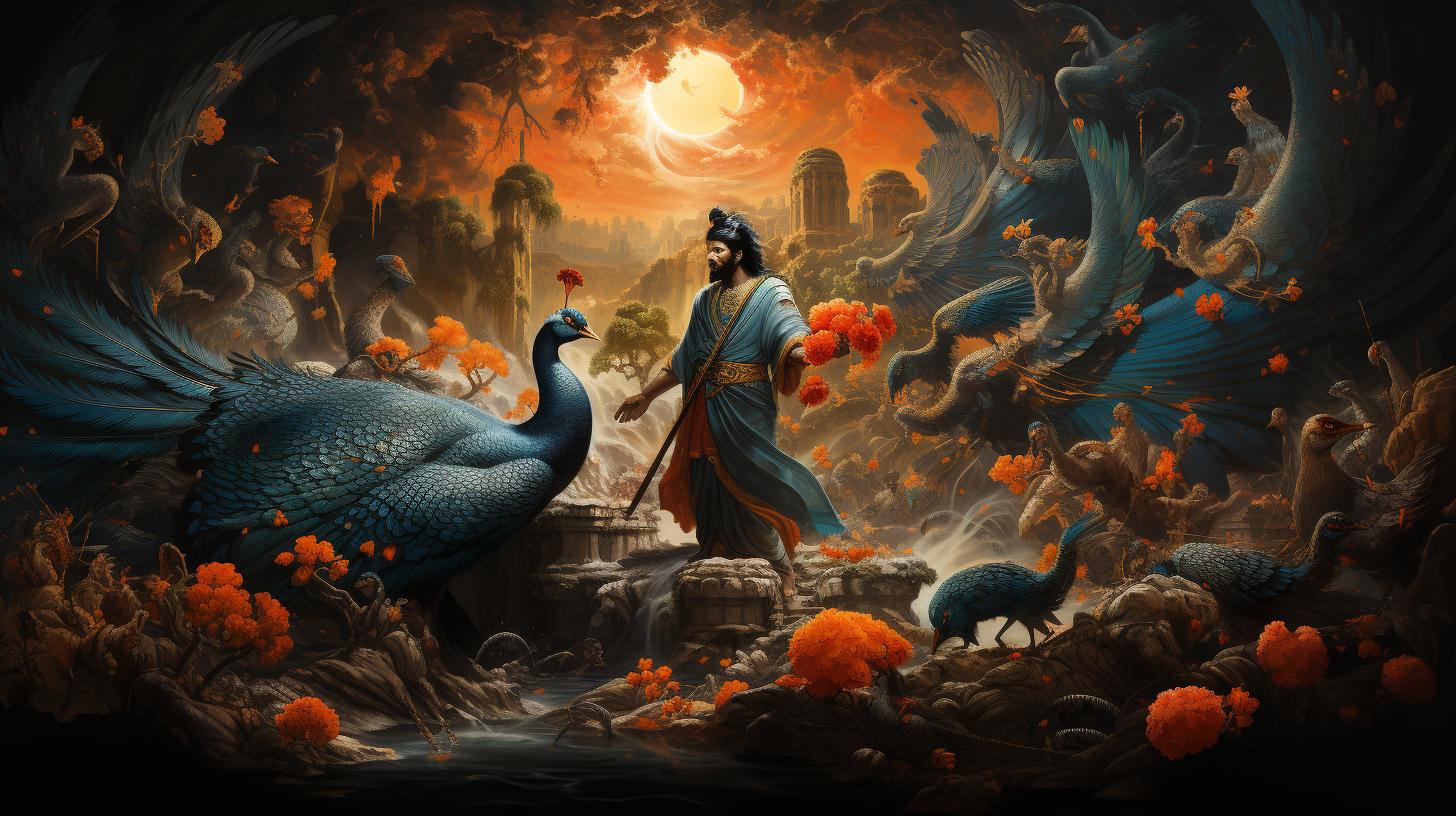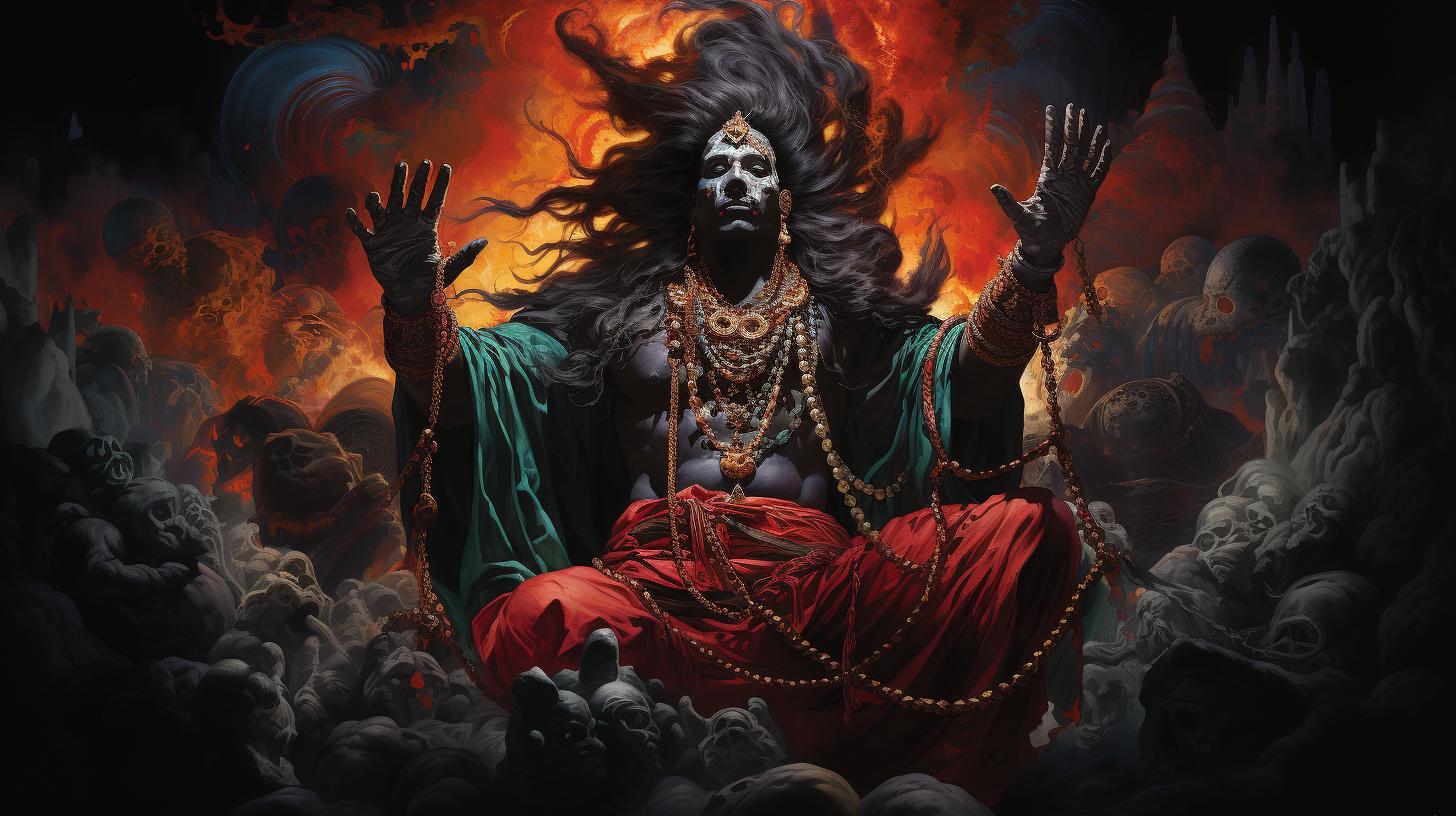Nakula and Sahadeva: Exploring the Lesser-known Heroes of the Mahabharata
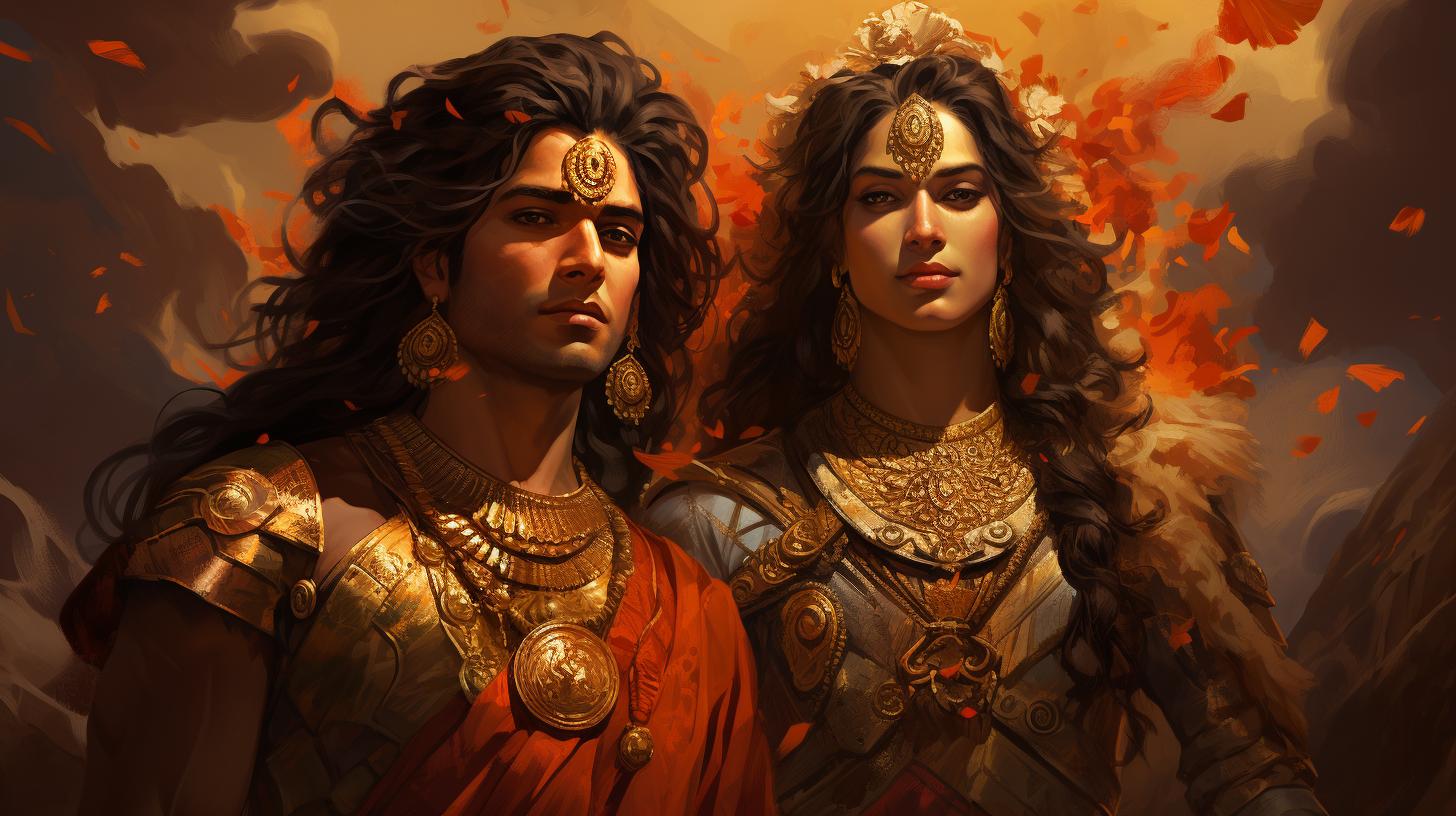
Nakula and Sahadeva, the lesser-known heroes of the Mahabharata, played significant roles in the epic tale. Born as twins and blessed by the Ashvin twins, Nakula and Sahadeva possessed unique skills and talents.
Known for his swordfighting prowess and expertise in astrology, Sahadeva proved his mettle in the Kurukshetra War, even defeating prominent warriors like Shakuni. Meanwhile, Nakula, considered the most handsome man on Earth, excelled in horse breeding and was also knowledgeable in astrology.
Together, their contributions to the war and subsequent events shaped their later lives and legacies. Explore the intriguing stories of Nakula and Sahadeva in this article.
Birth and early years
Nakula and Sahadeva, the lesser-known heroes of the Mahabharata, had intriguing birth stories and early years that contributed to their remarkable destinies. According to ancient scriptures, these twin brothers were blessed by the divine Ashvin twins, bestowing upon them unique gifts and qualities.
Sahadeva, known for his skills in swordfighting, astrology, and Neeti Sastra, displayed extraordinary talent even in his youth. His mastery in these areas set him apart from his peers and foreshadowed his future role in the epic saga.
Nakula, on the other hand, gained fame for his exceptional physical beauty. Ved Vyas, the sage and author of the Mahabharata, described Nakula as the most handsome man on Earth. His charisma and appearance made him stand out among others.
Both brothers were conceived through the divine intervention of the Ashwini twins, making their birth truly remarkable. However, their destinies were not without challenges. They faced curses that rendered them unable to recall their own predictions and glimpses of the future, despite their innate astrological capabilities.
As children, Nakula and Sahadeva honed their skills and knowledge, guided by their upbringing and the guidance of their elders. Their early years set the stage for their future accomplishments and the pivotal roles they would play in the grand scheme of the Mahabharata.
Marriage and Children
After their remarkable exploits in the epic Mahabharata, Nakula and Sahadeva embarked on their respective journeys of marriage and parenthood.
Nakula, known for his exquisite charm and charisma, entered into a sacred bond of matrimony with Draupadi, the esteemed wife of all the Pandava brothers.
Their union was blessed with two children. Their son, Satanika, grew up to be a warrior of great valor, following in the footsteps of his brave father. On the other hand, their daughter, Printha, exuded grace and beauty and became a symbol of feminine strength.
Sahadeva, the astute and enigmatic Pandava, also found his soulmate in Draupadi. The marriage between Sahadeva and Draupadi added yet another layer of complexity to the intricate relationships between the Pandavas.
Their marriages not only solidified the bond between Nakula, Sahadeva, and the other Pandava brothers but also brought forth a new generation destined for extraordinary lives.
As husbands and fathers, Nakula and Sahadeva embraced their responsibilities with unwavering devotion.
Their dedication to their families mirrored their unwavering loyalty to their brothers and their underlying duty to upholding righteousness.
Through their marriages and the birth of their children, Nakula and Sahadeva carried on the legacy of the Pandava bloodline, ensuring that their heroic stories would echo throughout time.
Exile
During their exile, Nakula and Sahadeva faced numerous hardships and challenges that tested their resilience and determination. Forced to live incognito for a year, they disguised themselves and settled in the Kingdom of Virata.
During this time, Sahadeva adopted the identity of a humble shepherd named Tantripala. He served in the royal stable, taking care of the kingdom’s horses with great skill and dedication. Sahadeva’s astute observations and understanding of horse breeding earned him respect and admiration from his fellow stable workers.
Meanwhile, Nakula assumed the persona of a talented horse trainer named Granthika. His expertise in handling horses and taming wild stallions became widely known throughout the kingdom. Nakula’s exceptional horsemanship soon gained him recognition and respect from the people of Virata.
Despite the hardships they faced, Nakula and Sahadeva maintained their loyalty and dedication to their elder brother, King Yudhishthira. They patiently awaited their reunion and the end of their exile, biding their time and preserving their true identities.
The disguises allowed them to remain inconspicuous and gather valuable information about the political landscape of the kingdom. Their astuteness and deep understanding of human nature helped them navigate the complexities of the court, ensuring the safety and prosperity of King Virata’s rule.
Nakula and Sahadeva’s selflessness during their exile demonstrated their unwavering commitment to their family and their ability to adapt to adverse circumstances. Their roles and actions during this period showcased their intelligence, resilience, and loyalty, setting the stage for their future endeavors.
Role in the Kurukshetra War
Nakula and Sahadeva’s contribution to the Kurukshetra War, one of the most significant events in the Mahabharata, was remarkable. As skilled warriors and strategists, they played crucial roles in the Pandava army.
Both Nakula and Sahadeva displayed their valor and fighting prowess on the battlefield. Nakula, known for his swordsmanship, engaged in fierce combat, showcasing his expertise. His agility and precision with the sword proved instrumental in overpowering many enemy warriors.
His ability to anticipate the enemy’s moves played a key role in their victory.
During the war, Sahadeva also fulfilled a significant promise he had made. He sought revenge against Shakuni, the mastermind behind much of the conflict, and successfully killed him, alleviating the Pandavas’ burden and bringing justice to their cause.
Despite their considerable contributions, Nakula and Sahadeva’s roles in the Kurukshetra War have often been overshadowed by their more renowned brothers, Yudhishthira, Arjuna, and Bhima. However, their bravery, intelligence, and unwavering loyalty to their cause should not be overlooked.
As the war concluded, Nakula and Sahadeva emerged as true heroes, respected not only by their allies but also by their adversaries. The tales of their valor and sacrifices on the battlefield would forever be etched in the annals of the Mahabharata, sealing their place in history.
Later life and death
Nakula and Sahadeva’s later lives were filled with various accomplishments and tragic events. After the Kurukshetra War, Yudhishthira, their eldest brother, crowned Sahadeva as the king of the southern region of Madra.
Sahadeva ruled with wisdom and fairness, working to establish peace and prosperity in his kingdom.
Meanwhile, Nakula’s life took a different turn. Known for his exceptional beauty, Nakula lived a peaceful existence as a devoted husband to Draupadi.
Their love bore fruit in the form of two children – a son named Satanika and a daughter named Printha.
As the years passed, Nakula’s expertise in horse breeding became renowned across the land.
He dedicated himself to enhancing the breed of horses, establishing a legacy that was admired by many. Despite his contributions, Nakula’s presence in the later parts of the Mahabharata narrative remained relatively limited.
Tragically, both Nakula and Sahadeva faced their demise during their journey to the Himalayas. It is said that the twins were extraordinary individuals with a profound connection to spirituality. While the exact circumstances of their deaths remain ambiguous, their sacrifices and contributions to the epic tale continue to inspire generations.
..











